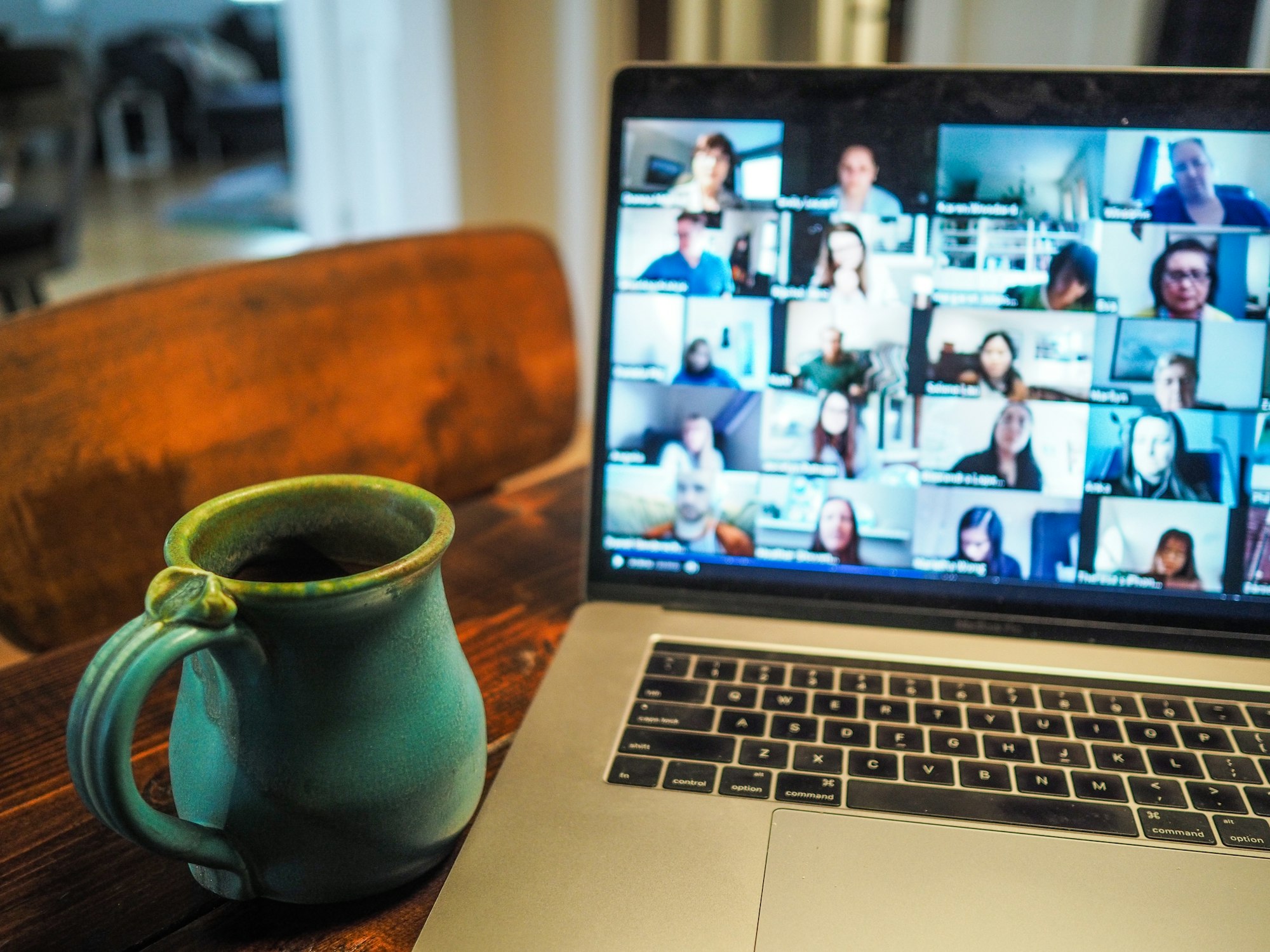What's Best for You? Work from Home vs In-Person vs Hybrid
Deciding whether you want to be in the office every day, work from home, or take a hybrid approach can be a tough decision. There are pros and cons to each way of working. Today we're going to pull back the curtain and talk about what many employees keep to themselves!

If you're a PharmD student looking to take a non-traditional career path, you will have options that look very different from your standard retail, inpatient, and outpatient jobs. These non-traditional roles may involve ways of working previously thought impossible just 4 years ago. I'm referring of course to an ability to work from home (WFH), which is a situation that many people found themselves in as a consequence of the COVID-19 pandemic. After having spent nearly 2 years in the pharmaceutical industry in WFH and hybrid (combination of WFH and in-person) roles, in addition to 7 years of combined retail and inpatient experience, I've developed a list of opinions regarding the pros and cons of WFH vs hybrid vs in-person work that may help you choose which environment is best for you! Let's dive in.

IN-PERSON
Pros: There are a ton of pros to being in-person. It's certainly the best way to become close to your coworkers and get face time with your boss. If you want to build genuine relationships with people, there is no beating face-to-face interaction. During the years I spent working in pharmacies, I became close with a lot of my coworkers as we took on the daily grind together. During my time in the industry, I became closer to the people I would see in person, much more so than those I only met virtually. If you want to be thought of first when a promotion or new position comes around, it's extremely advantageous to have developed genuine relationships with the hiring managers. With that in mind, it's much easier to laugh, connect, and bond with people in person. It's how we evolved to do so!
There are also some advantageous workflows that come with being in person. Rather than sending 10 emails or instant messages back and forth, you can just walk up to someone's desk and have a conversation. You don't always have to schedule 30-minute touchpoints to stay in contact with someone because you see them in the halls and at lunch. You can often get quick questions answered much faster than you can virtually. Of course, this assumes that the colleagues you're interacting with are in the office with you, which is not always the case when teams are spread across the country or even on different continents.
It's also the case that the most fun activities you can do with your team are in person. Networking, dinners, lunch parties, cocktail hours, traveling to conferences, or hanging out with each other on the weekends are all in-person events that really shouldn't be ignored or forgotten.
Lastly, we have company loyalty and buy-in. People want to feel proud of what they do, where they work, and what their contributions are to society. It's the job of company leadership to present mission and vision statements that allow their employees to buy into a greater good. It's a team effort that drives a company toward its goals, but you have to have employee buy-in if you're going to move the needle. It's difficult for an employee to feel loyal or passionate about his or her company if they've never been on site, never shook someone's hand, never had a drink with a coworker, or never interacted face-to-face with their boss. In that case, they're more likely to take the next job offer with a slightly higher salary than they are to buy into the company culture.
Cons: The cons of in-person work that I've personally experienced are mostly related to convenience and personal expenses. Getting up earlier, packing a lunch, putting on professional clothing, commuting, and paying for gas. According to a Morning Brew poll, "Workers who commute spend about 28 minutes getting ready, compared to 19 minutes for remote employees." Before the pandemic, these things were just accepted as part of the job, but with WFH options they are now looked at as barriers to productivity. A commute alone can cut hours out of your normal working day. Eating in a cafe rather than at your home desk cuts out time too, and so does actually walking from meeting to meeting.
Not to mention, depending on your team, there's not much consistency around who comes into the office on any given day. If you're in a global or country-wide role, you might very well be commuting just to spend 85% of your time on virtual calls that you could have taken from the comfort of your own home anyways. Many teams are so spread out now that half of them might be in a different office than you anyways, so you don't get the team bonding that is the core benefit of in-person work.
Then there are all of the personal expenses associated with commuting (train tickets, gas, parking, increased mileage on your vehicle and rate of depreciation, buying lunch at the office, etc...).

WFH
Pros: The pros of WFH are essentially the antithesis of the cons of being in-person. The convenience is incredible. You can eat your own food, drink your own coffee, take the dog out, have your favorite music playing, have conversations with your spouse rather than your coworkers, take the kids to school without worrying about rushing to the office, and so on. You can even wear comfortable clothes without worrying about how they look, but be careful on virtual calls! With all that being said, the core benefit of WFH is work-life balance.
There are also areas of increased productivity. You can fill your normal commute time with actual work. You can also work during the hours in which you feel most productive. For instance, if you're an early bird, you can start work at 6am, take a break from 9am to noon, then finish out the day with everyone else. The same goes for night owls, you just need to make sure you're in the required meetings and still excelling outside of the traditional 9-5 schedule. Speaking of meetings, you now have the ability to have true back-to-back meetings without wasting time in between them walking from room to room (note, this is actually a con of mine, but some see it as a pro). You simply end one call and join the next with the click of a button. According to surveys, working from home saves you roughly 70 minutes per day, and 30 of those minutes are spent working. That tacks on 2.5 hours to the workweek, but employees don't seem to mind given the work-life balance that comes with it.
Outside of standard convenience, there are also lifestyle benefits to WFH. For instance, you can work from anywhere! It doesn't matter what state or country you live in, as long as you have internet access, you're good to go. Don't want to live in the city? No problem. Want to live in a bigger city? No problem! If you get sick of the home office, you can go work at a coffee shop or local park. There's nothing stopping you from working outside on sunny days, and you don't have to drive in the snow during the winter. You can live as close or as far away from family as you please, and for the first time in history, this may not preclude you from working in certain industries.
Cons: There are a number of cons worth mentioning about the WFH lifestyle. For myself, the main one is a lack of connection to your company, coworkers, and boss. If you've never set foot in the office or met your coworkers face-to-face, it's really hard to build genuine connections. Not only have many people never met, but they've never even seen each other's faces. This is because the culture at many companies is to keep your cameras off during meetings. That's not a great way to make friends, but it's also convenient to roll out of bed and start working without worrying about how you look.

HYBRID
Pros: Many people believe that hybrid roles are the "best of both worlds", which I mostly agree with. Being able to split your time between the office and your own home can be great and extremely flexible. You can still get important face time with coworkers, build genuine relationships, create memories, and so on, but you can pick and choose when to do so. Maybe your team meets up every Thursday at the office and goes to a team gathering after hours where everyone can be themselves and really interact. Maybe you see your team while traveling to conferences around the country, but never in the office. Maybe your team meets up once a quarter to have fun, and the rest of your time is WFH. All of these situations exist, and you can find open positions with these arrangements today.
Another common approach to hybrid roles is half days. Perhaps you're in the office from 8am-2pm, then you drive home and take your 3pm meeting from home so that you avoid evening traffic. This is extremely common and can help to ensure that in-person interactions are still held while still avoiding some of the everyday inconveniences of commuting like mind-numbing traffic, missing soccer practice, being late for dinner, or relying on someone else to pick your kids up from school.
Cons: The main cons of hybrid work schedules revolve around inconsistency. Some people want to be in the office 3 times a week, others want 1 time per week, and some will want to come in once a month or quarterly. If a team doesn't align on this front, they risk suffering from one of the cons of in-person work which is to commute to the office only to sit alone or spend all of your time on virtual calls. Additionally, if one group is required to come in 3 times a week and a different group comes in once a month, it might ruffle some feathers and spark conversations around what's fair.
Other potential issues arise like forgetting to set up meeting rooms for both in-person and virtual attendees. This happens often, and it's a consequence of some people being back in the office while others remain at home. In the past, these rooms didn't need to be set up for virtual interactions, and it can be even more complicated in large conference rooms. Additionally, there is a myriad of tech issues that are destined to come up during important meetings. Someone can't join a call, someone's microphone keeps cutting out, a presenter cannot figure out how to share their screen, attendees forget to mute themselves, and too many people with their cameras on causes a lag. It's almost guaranteed to happen. Then there are non-tech-related issues like John Doe not wearing pants or Jane Doe falling asleep on camera, neither of which would happen in person (probably).

DISCUSSION
Across industries, there is often a disconnect between leadership and everyone underneath them when it comes to WFH setups. Many leaders believe that getting folks back in the office will be the most important initiative they have in the coming years, and perhaps the most difficult. It will be challenging because much of the middle management and lower-level workforce are on the opposite side of the coin, hoping to make WFH and hybrid setups a standard for the future. This varies from industry to industry, but it's certainly a common theme. Some leaders are quite strict about working in the office, such as Elon Musk at Twitter.
On the other hand, employers are worried about losing top talent. With lists floating around like "20 Best Work From Home Companies in 2022", there's a lot of concern around losing your best employees to the competition which is offering a better work-life balance. This is certainly the case with the incoming millennial workforce, which is generally speaking much more comfortable with WFH compared to older employees. Remember, this is the first generation to grow up with computers in their back pockets and they are exceptionally comfortable in the virtual environment.
I don't personally believe there is a "best" approach that can be generalized across the board. Whether in-person or WFH is best for you depends on what your work entails, where the rest of your team is located, what your home life looks like, your personal financial situation, and what your priorities are. So, as you're entering the workforce, think long and hard about what you want from your career and what you're willing to give up in order to get what you want. Only you know what is right for you!

